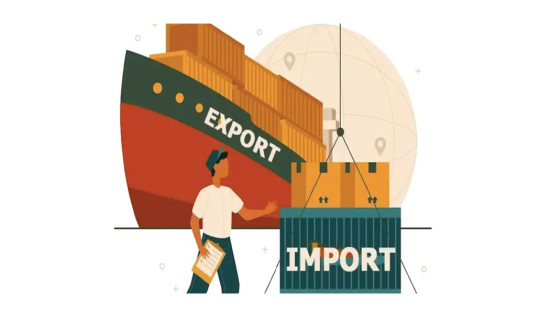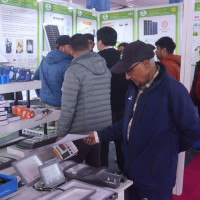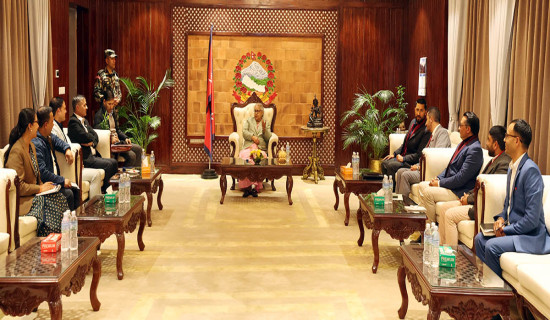- Monday, 22 December 2025
Films bridge across borders, says Luintel
Mehaka Chahat Luintel, a graduate of Columbia University’s prestigious Creative Producing Programme, is the first Nepali student admitted to Columbia’s MFA programme in film. Her recent short film, Le Choix, shot in Lubumbashi, Congo DRC, delves into themes of sexual harassment, education, and resilience. She talks to TRN about her passion for storytelling and ability to navigate challenges across cultures. Excerpts.
What inspired you to pursue the film-making career, and how did your background shape it?
I grew up in Nepal and was always drawn to storytelling. My first experience came through theatre in school. Later, I took a theatre course at the Actors Studio, which deepened my passion for the craft. After high school, I moved to Bombay to pursue filmmaking. I worked as a screenwriter, directed short films, and wrote advertisements. Those years gave me a foundation, but I wanted to grow further. That desire brought me to New York, where I became the first Nepali admitted to Columbia University’s MFA Film programme. There I specialised in producing because I love bringing good writing and talent to life. I’m also a writer, and I enjoy working with writers who are even better. My goal is to champion South Asian stories and give them a global audience.
What drew you to producing films?
Producing is a balance of creativity and problem solving. I love identifying strong stories and helping shape them. Collaboration is at the heart of producing. Whether it’s helping a director realise their vision or finding the right team, it’s about enabling the best work. I also enjoy the logistical side, navigating challenges while protecting the creative vision. Producing lets me support other creatives and ensure the story reaches its full potential.
What was the experience of producing Le Choix in Congo?
Producing in Lubumbashi was both challenging and rewarding. We collaborated with the University of Lubumbashi. The director’s father was an alumnus, and through that connection, the university generously gave us access to their campus. We cast students and staff as actors and hired locals for crew roles like sound recording, focus pulling, and production assistance. Many of them were mine workers or unemployed. Language was a significant challenge. I didn’t speak French or Swahili, so we relied on the director’s cousin, who acted as our line producer and translator.
Securing locations took time. We needed permissions from various university departments, which meant days of knocking on doors and building relationships. Everyone was kind, but it required persistence. The university used a generator for power, but the noise interfered with sound recording. Convincing university heads to turn it off was a process. It helped us learn patience and negotiation. Most of the crew arrived two hours late on the first day. We adjusted by planning around cultural norms rather than trying to change them. Despite these challenges, the collaboration was amazing. The cast and crew brought authenticity to the story. The students acted in their natural environment, which added so much realism.
What lessons did you take away from your international projects?
Every country has its own way of working. Producing internationally taught me to be adaptable and prepared for the unexpected. In Congo, I learned the value of relationship building. You can’t rush things. Trust takes time. I produced another short film in China called Do You Have a Name? It’s a slice-of-life film about a visually impaired man’s relationship with a robot dog. That project came with different challenges, like navigating strict regulations. Both experiences taught me that storytelling is universal but the process of filmmaking is deeply influenced by culture.
What’s next for you as a producer?
Right now, I’m assisting the producer on a Netflix documentary about The New Yorker Magazine directed by Marshall Curry. It’s been an incredible experience to see how a project of this scale is managed. At the same time, I’m continuing to work on my own films. Both Le Choix and Do You Have a Name? are on the festival circuit. Producing has given me the chance to bridge borders and create meaningful stories.











-(1)-original-thumb.jpg)





